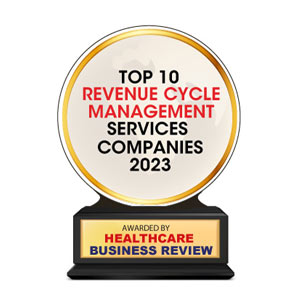Revenue Cycle Management (RCM) is a critical process for healthcare providers that involve managing the financial transactions from patient registration to the payment of services provided. Effective RCM helps providers to optimize their revenue streams, reduce operational costs, and improve patient satisfaction. This research article will examine the trends in healthcare revenue cycle management, including developments in technology, regulations, and strategies that can improve RCM outcomes.
Advances in technology have played a significant role in the transformation of healthcare RCM. Electronic Health Records (EHRs) and Revenue Cycle Management (RCM) software have become essential tools for providers to improve operational efficiency, enhance data accuracy, and streamline billing processes. The integration of EHRs and RCM software provides real-time access to patient data, allowing providers to track the status of claims, monitor patient balances, and identify revenue leakage.
The healthcare industry is subject to numerous regulations and policies that impact revenue cycle management. In recent years, there has been a shift towards value-based care, which incentivizes providers to deliver high-quality care at a lower cost. The Centers for Medicare & Medicaid Services (CMS) have implemented several programs that focus on value-based care, including the Merit-Based Incentive Payment System (MIPS) and the Alternative Payment Model (APM).
Effective healthcare revenue cycle management requires a comprehensive strategy that includes patient engagement, revenue cycle analysis, and staff training. Providers are adopting new strategies to improve patient engagement, such as patient portals that allow patients to view and pay their bills online, and mobile applications that provide real-time access to patient data.
Healthcare revenue cycle management is an essential process for healthcare providers to optimize their financial performance and improve patient outcomes. The use of technology, regulations, and strategies can significantly impact RCM outcomes, leading to better financial results and enhanced patient satisfaction. As the healthcare industry continues to evolve, providers will need to adapt their RCM strategies to meet changing regulations, incorporate new technologies, and improve their performance in the value-based care environment.















